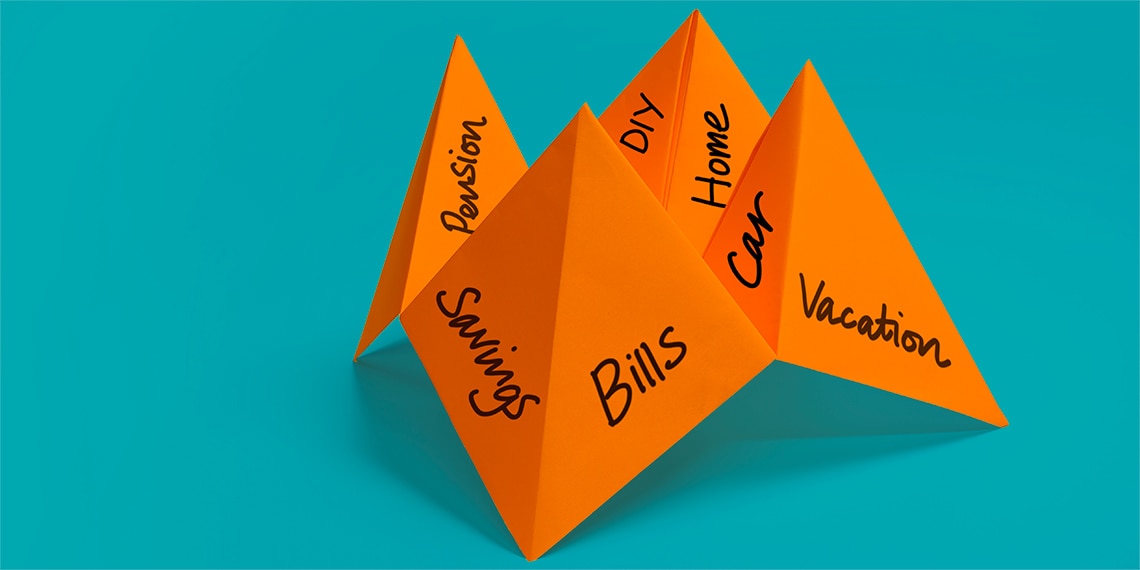
Before Helenna Chun hit a rough patch financially, she had never talked openly about money—mostly because her parents didn’t discuss financial matters with her when she was growing up. So, in November 2018, when Chun found herself unemployed with little savings to fall back on, she lacked the tools and financial resources to navigate her situation.
“The only time my parents talked about budgets is when I would ask for something and they would say, ‘No, we can’t afford that right now.’ That’s all I really understood,” says Chun, now 23. “I wish my parents had been more open and honest about how they handled their finances. After I moved away from home and graduated from college, there were suddenly a lot more bills and monthly charges I had to stay on top of.”

Helenna Chun
To better understand the basics of budgeting, Chun started asking her friends financial questions, like what percentage of their income goes to rent and what kind of budgeting methods they use. With their help, and with considerable dedication on her own part, Chun now has her feet underneath her and is working toward a more secure future.
Facing Unemployment
After graduating from college in 2018, Chun moved to Denver, CO, to work on a political campaign. Once the campaign ended, so did her job, and she found herself living off meager savings with no income in a city with a high cost of living. She took a job working as a field organizer for a local city council campaign, but the pay wasn’t enough to cover her bills, so she quit and turned her attention to full-time job hunting.
She picked up babysitting gigs to help cover her expenses, but in the four months it took to find another full-time position, Chun blew through her $1,700 in savings and began charging everything to her credit card. She ended up with $1,500 in credit card debt. Even though paying down that debt will take time, Chun says she is grateful she had the option of using a credit card when she had little spending power.
“One of the traps people fall into when they have a credit card is that they just start swiping and then they’re too afraid to look at how much they spent—then their debt just snowballs,” Chun says. “I think the key is knowing what you’re going to use your credit card for—being really intentional about what you put on it and making sure that you have a plan to pay it off.”
Working Toward Financial Goals
Chun’s circumstances started to change when she took a job as a union organizer. The steady income eased Chun’s worries and allowed her to begin implementing the budgeting practices she had learned from her friends. She started by listing her monthly expenses, then noting on her calendar when each payment was due and assessing how those payments lined up with her paydays. Now she pays at least the minimum on her credit card each month, plus more depending on additional funds she can pull together. As a result, she’s steadily chipping away at her debt.
Simultaneously, Chun is working to build an emergency fund of $4,500, so she knows she’ll be able to pay her bills if she loses her job. To work toward this goal over the next few years, she’s set up an automatic deposit of $40 into her savings account every week. “I can afford to have $40 leave my account and not really notice,” Chun says. “It makes me realize that small things can make a difference.”
Although Chun still wishes her parents had discussed financial matters with her growing up, she says she’s come a long way in expanding her financial knowledge. While she continues to ask her friends a lot of questions about money, she feels more capable navigating her own financial affairs.
“We shouldn’t be afraid to have conversations about our finances,” she says. “I think we’re all going through the same thing. Everyone is struggling and trying to figure it out. Money shouldn’t be scary to talk about.”
Erin Heger is a freelance journalist in Kansas City who covers topics related to healthcare policy, maternal mental health, personal finance and parenting.
Inset photo courtesy of Helenna Chun.
Gain confidence in managing your money with our Personal Finance 101 series.

